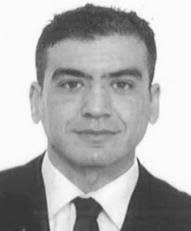Important Things in Managing Projects
Interview with Youcef J-T. Zidane, PhD
Senior Researcher
Centre for Research in Applied Economics for Development
Algiers, Algeria

Interviewed by Yu Yanjuan
Journalist, Project Management Review: PMR (China)
International Correspondent, PM World Journal
Introduction to the interviewee
Youcef J-T. Zidane is a senior researcher in the Division of Human Development and Social Economics, Centre for Research in Applied Economics for Development (CREAD) in Algiers, Algeria. He has over 15 years’ experience working internationally as a Senior Project Manager, developing, planning and delivering projects in many media for large-scale telecommunications infrastructure projects in many countries; then as project manager for research projects in the fields of innovation systems, system thinking, quality engineering and management, good governance, project management, and sustainable development.
Youcef obtained a PEng degree in the field of Electronic and Electrical Engineering from the Institute of Electrical and Electronic Engineering (INELEC) in Algeria. After a Master of Technology (MTech) in microsystems degree in Germany, he went on to study a Master of Science in Engineering (Project and Quality Management) and a PhD in Quality Management and Engineering at the Norwegian University of Science and Technology (NTNU). Youcef’s PhD focused on investigating the two dimensions of time (i.e., Chronos and Kairos), and its relationship in managing large-scale engineering projects.
Currently, Youcef is also the lab head of Knowledge-Based Economy at CREAD. Youcef is in charge for research projects among them building ANIS “Algeria’s National Innovation System”, “Algeria’s Knowledge-based Economy”, and “Quality engineering and management for research institutions and research projects”.
Interview
Part I – About Trust
Q1. Based on your observation, what is the common impact of trust on project performance?
Youcef J-T. Zidane (Zidane): Since it is believed that trust has a positive effect on project performance, it is relevant to try to assess its overall effect. A high level of trust between clients and project design teams reduces transaction costs and maximizes creativity and problem solving. Trust-based relationships will not easily weaken because of differences of opinion. Trust enables partners to overcome difficulties and facilitates mutual understanding. Therefore, trust can help to strengthen and improve the relationships among project partners, and as a result, bring a variety of benefits for the project as a whole.
Project stakeholders and leaders value trust as being vital to project performance and success. Trust in the project teams’ ability to complete their tasks increases the level of involvement in the project. The trust at different levels affects the project positively. For example, in innovative or problem-solving projects, a high level of trust between clients and the project group reduces the transaction costs in the early phase of the project. The long-term relationship with clients contributes to establishing level of trust; long-term working with companies and different stakeholders establishes a level of trust and reduces transactional cost in the project. In the early phase of a project, project members from different departments need to know each other first. When project members do not know each other, it takes longer to build trust.
Trust can affect the project through knowledge sharing. Without trust, project members do not share their knowledge and their experiences, which hinders the progress of the project. However, based on the literature, trust can be enhanced through a reward system that influences people’s perception of each other’s motivation and the value of joint performance.
Q2. What are your tips on building trust in virtual teams?
Zidane: A big challenge in virtual teams is to create, build and maintain trust among its members. Trust may exist in the initial phase of the virtual team, in the form of swift trust. This type of trust is so fragile and may dissipate, so the team leader should figure out how to nurture that small signal and amplify it until they get the highest level of trust, which is like a spark that gives life to a fire.
More…
To read entire interview, click here
Editor’s note: This interview was first published in PMR, Project Management Review magazine, China. It is republished here with the permission of PMR. The PM World Journal maintains a cooperative relationship with PMR, periodically republishing works from each other’s publications. To see the original interview with Chinese introduction, visit PMR at http://www.pmreview.com.cn/english/
How to cite this interview: PMR (2021). Important Things in Managing Projects: Interview with Youcef J-T. Zidane; Project Management Review; republished in the PM World Journal, Vol. X, Issue X, October. Available online at https://pmworldlibrary.net/wp-content/uploads/2021/10/pmwj110-Oct2021-Yanjuan-Interview-with-Yousef-Zidane.pdf
About the Interviewer

Yu Yanjuan
Beijing, China
![]()
Yu Yanjuan (English name: Spring), Bachelor’s Degree, graduated from the English Department of Beijing International Studies University (BISU) in China. She is now an English-language journalist and editor working for Project Management Review (PMR) Magazine and website. She has interviewed over sixty top experts in the field of project management. Before joining PMR, she once worked as a journalist and editor for other media platforms in China. She has also worked part-time as an English teacher in training centers in Beijing. Beginning in January 2020, Spring also serves as an international correspondent for the PM World Journal.
For work contact, she can be reached via email yuyanjuan2005@163.com or LinkedIn https://www.linkedin.com/in/yanjuanyu-76b280151/.
To view other works by Spring, visit her author showcase in the PM World Library at https://pmworldlibrary.net/authors/yu-yanjuan/









